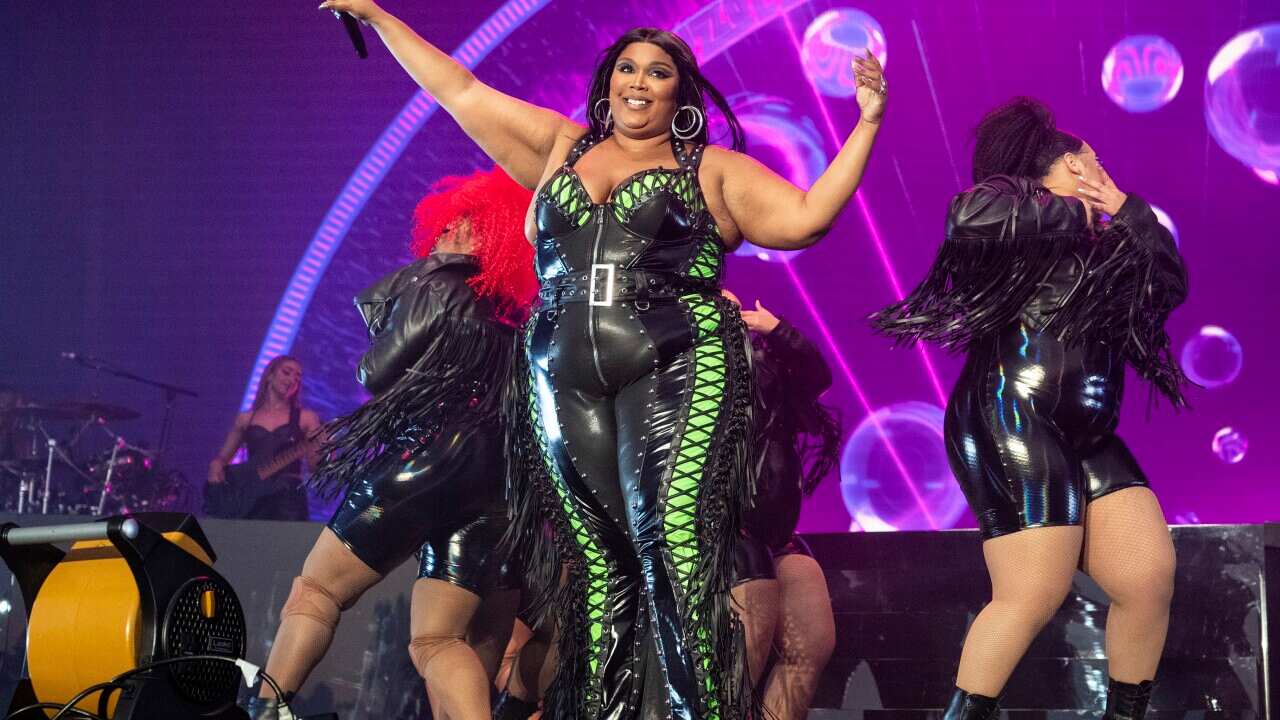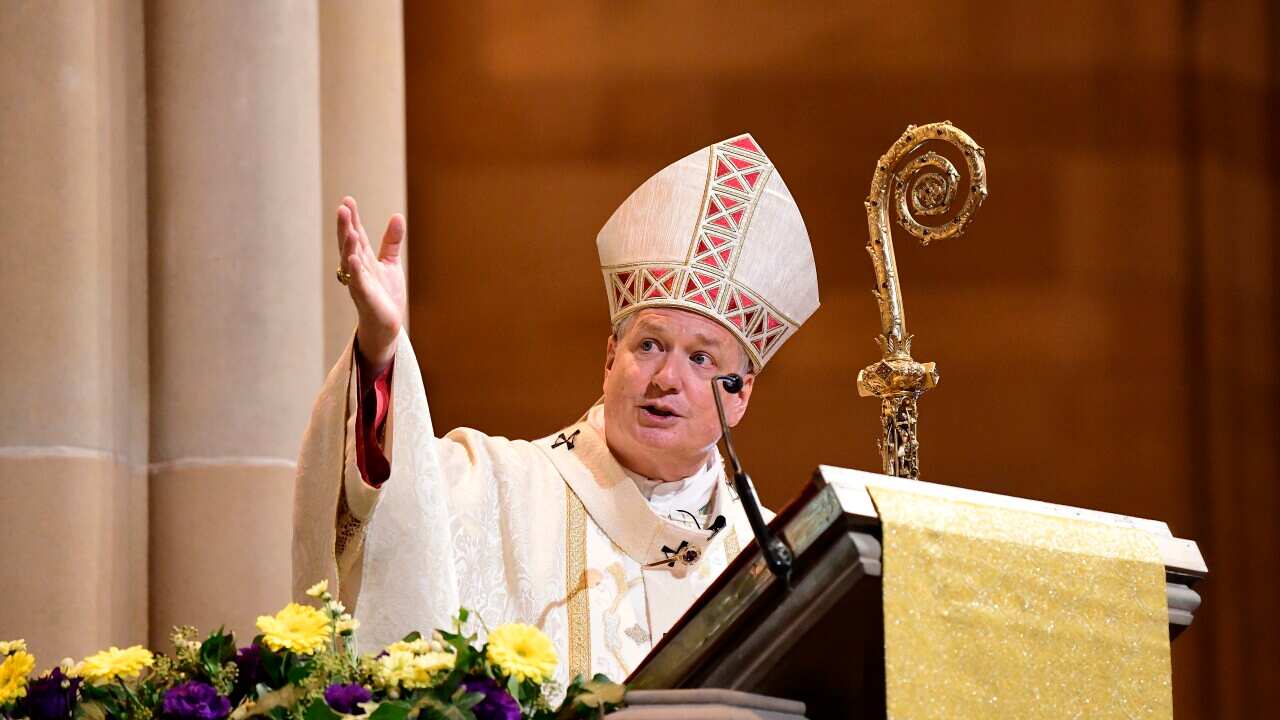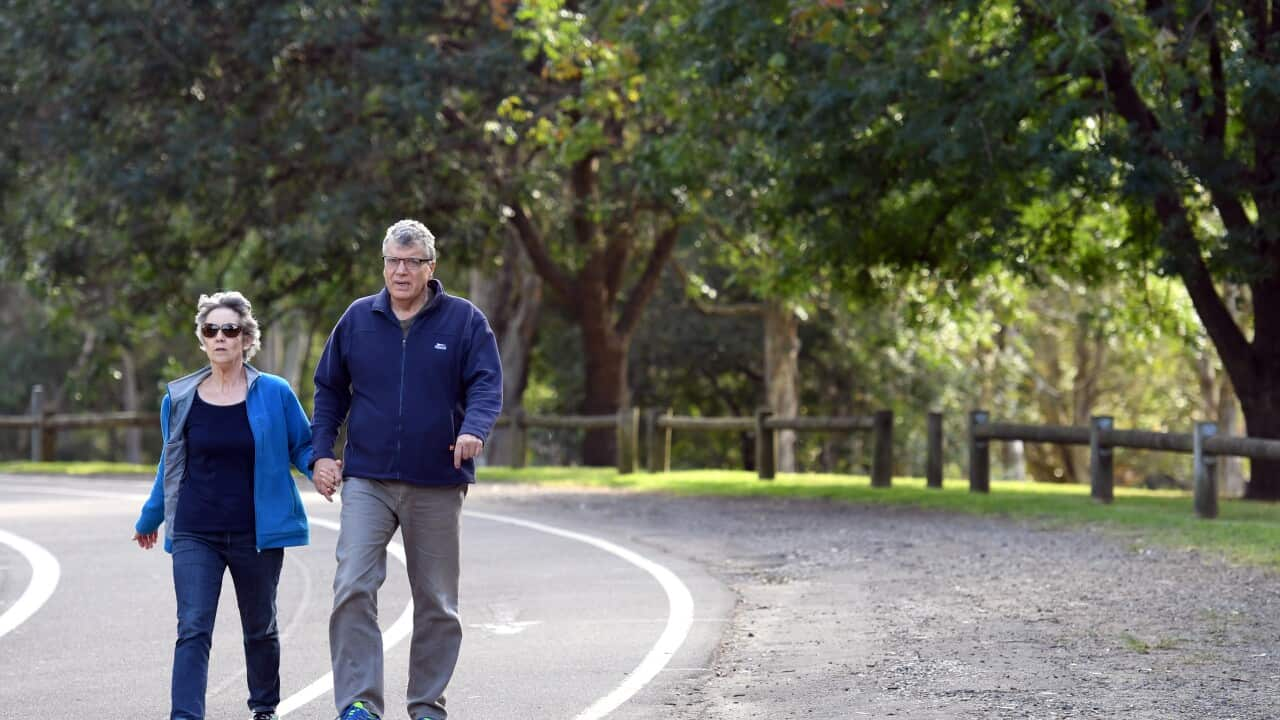Surrounded by other budding entrepreneurs at a startup incubator in Sydney's inner-city, Oliver Morton-Evans is explaining how he is hoping to help stroke and spinal cord injury patients.
He and his fellow co-founders of Neuromersiv, have been developing a virtual reality device that simulates everyday chores to further increase motivation in rehabilitation.
"We know we're onto something big and it could be quite life-changing for a lot of people," Mr Morton-Evans told SBS News.
"If we can pull off what we have planned, we'll be really impacting a lot of lives."
The device is still in its prototype phase but the team have high hopes that successful trials in 2019 will lead to commercialisation the following year.
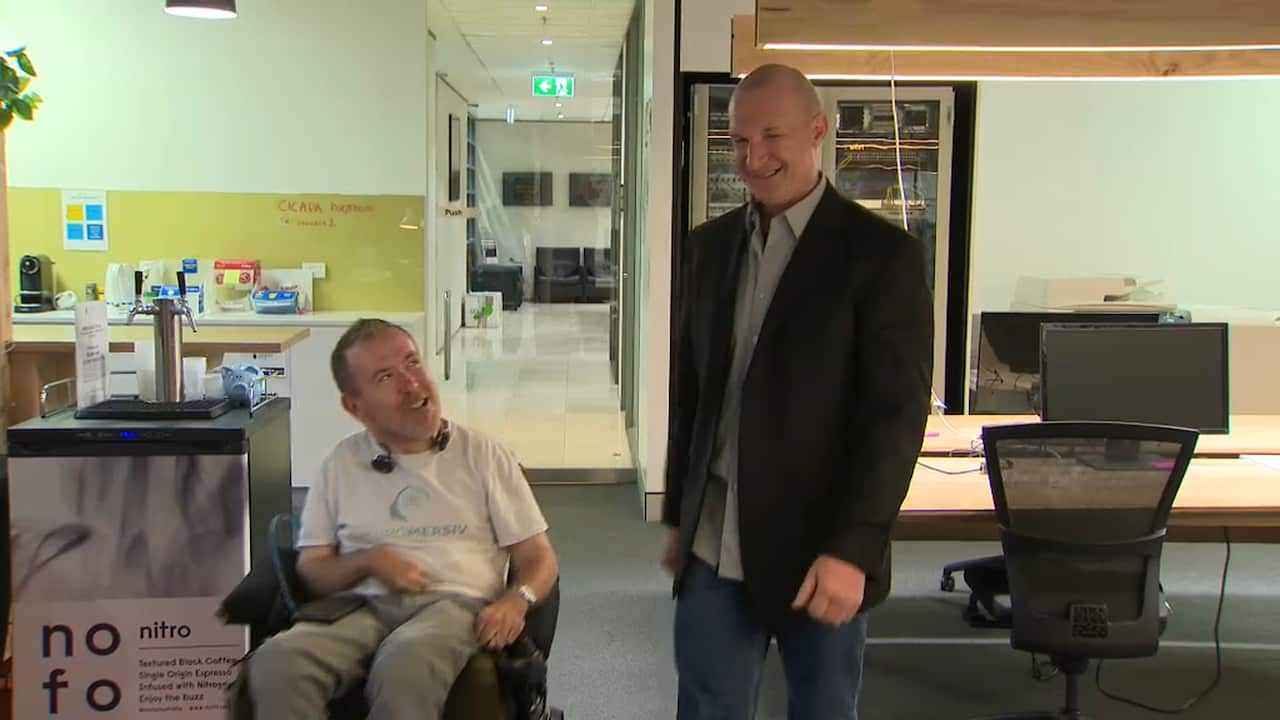
Co-founders of Neuromersiv Oliver Morton-Evans and Rohan O'Reilly Source: SBS News
Mr Morton-Evans, 39, has cerebral palsy and says while he has endured setbacks and challenges as
Rather, he says, it is his own lived experience that gives Neuromersiv a competitive edge.
"Knowing the challenges of living an independent life and how important that mobility is for greater independence and how empowering those people to get that independence back is a momentous thing."
Rohan O'Reilly is also co-founder of Neuromersiv and has worked with Mr Morton-Evans on the project since its inception a year ago.
"As soon as I saw Oli, first of all, it was his spirit that shone through and I could tell he was highly articulate. And he understood business, which is quite important," he told SBS News.
"There are two types of businesses in this world; there is the business that you make money, and there is business [where] you help people and make money ... and I could tell that was really important to him."
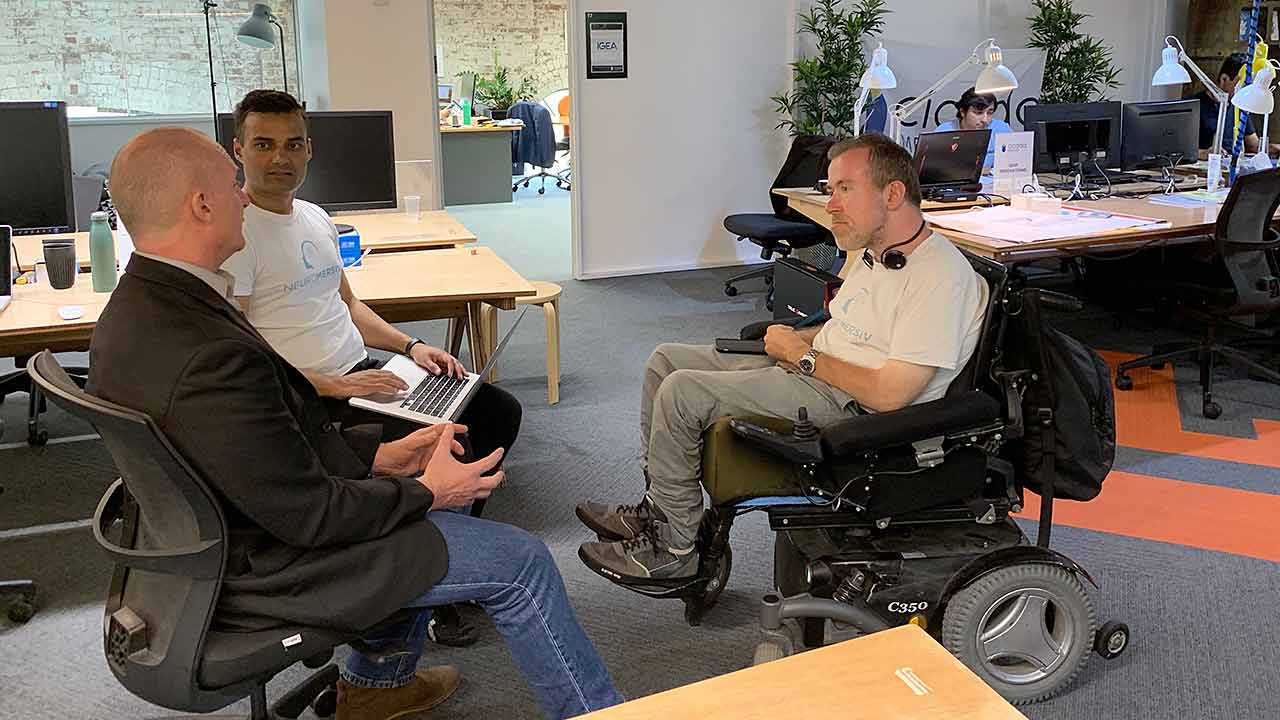
Oliver Morton-Evans meets with his fellow co-founders of Neuromersiv Source: SBS News
Mr Morton-Evans previously established a successful animation studio because, like many other many Australians with a disability, he struggled to gain employment despite being well qualified.
"I often used the tactic of not putting on my CV and I would get a lot of first interviews but then the astonishment for them when they saw I had a disability, that was quite challenging for them," Mr Morton-Evans recounts.
It's a common circumstance that many face, driving them to consider self-employment. 2015 Australian Bureau of Statistics show the rates among people with disability are 43 per cent higher than non-disabled Australians.
"The intersectionality of disability with gender, ageing, Indigeneity and cultural background are all considerations that affect the choice of people to become self employed or explore entrepreneurial opportunities," Simon Darcy, a professor at the University of Technology Sydney business school told SBS News.
"As our research has identified, a proportion of entrepreneurial ventures are social enterprises established by people with disability for a variety of purposes to address user led solutions to complex social problems."
'Relief' of working for yourself
Katherine Gill was an occupational therapist but is now a disability researcher and policy adviser, and has also started her own organisations. Her functional neurological disorder has come to greatly affect her movement.
Like Mr Morton-Evans, she draws on her personal experience in her roles as the chair of the Consumer Led Research Network and president of FND Hope Australia.
"I think you can better meet the needs of people with disability, understanding needs in terms of innovation. You can problem solve, you are trying to solve a problem for yourself but you're also trying to solve a problem for everyone else with that condition. So much better ways you can really see a solution be developed."
"Starting your own business can be a relief because you know what barriers there are and you can get going with your work without being held back,” she told SBS News.
“You know you've got a brilliant product, you know you've got huge potential, you know how much you have to offer but it's letting other people see that and getting the key stakeholders to see it."
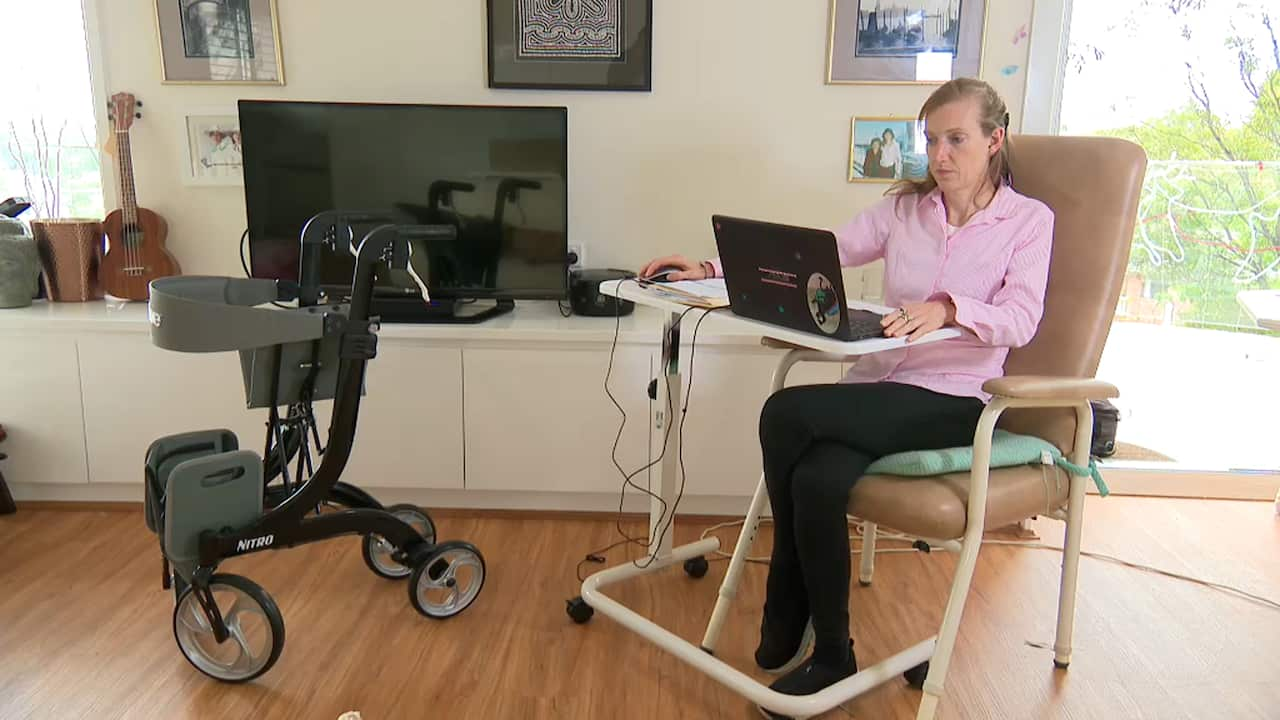
Katherine Gill says starting your own business can be a relief but it's about getting key stakeholders to see it Source: SBS News
New South Wales Minister for Disability Services Ray Williams says while progress is slowly being made, the lingering prejudices need to be challenged.
“You know straight away things that people can't do. But ultimately take the time to explore what they can do,” Mr Williams told SBS News.
“A person with disability, I mean ultimately they know what their limitations are, but they're going to take that chance on their ability to put themselves forward.”




